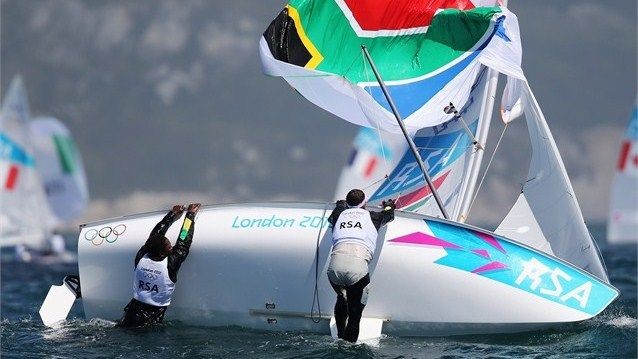Equipment for 2024 Olympics and Beyond
Delegates at the World Sailing Conference in Sarasota are going to be asked to vote again on Olympic Equipment Selection. Undoubtedly, each delegate and the MNA they represent wants to do what’s best for the sport. Of course, if everyone agreed on “what’s best for the sport”, the vote would be unanimous. History suggests that consensus is unlikely. However, there’s a way of looking at the issue which might help:
- The Olympics might be the pinnacle of sport but, to make it financially viable, it is primarily in the “entertainment” business – just like the Soccer World Cup, Rugby World Cup, etc. An entertainment business is successful if it achieves:
- Large numbers of paying spectators
- Substantial audiences watching television or online
- And, in short, high levels of interest from the general public
- To be part of the Olympics, a sport and individual events within it, must help make the event successful in terms of the definition above
- If the sport is not able to drive Olympic revenue from the general public, no amount of history, tradition, etc will justify the opportunity cost of its place not being taken by an event that provides better returns to the IOC
- From the point of view of Sailing, we want to be in the Olympics because:
- It is an opportunity to present our sport (in a positive way) to the largest global audience
- The Olympics is the largest contributor to World Sailing’s budget
- To be clear, as things stand right now, Sailing would find it difficult to survive without the Olympics. And the Olympics would hardly notice if Sailing was not represented
You will know that an athlete has very little chance of success at the Olympics unless he / she is professional. Traditionally, athletes are able to be “professional” – in other words, “compete full-time and earn a living from participating in a particular sport” – if the public is interested enough in what they do to pay to watch them compete. An athlete could also be able to compete full-time if he / she is high profile enough to do product endorsements, public speaking engagements, etc. You will be aware of how few sailors, especially in the traditional Olympic classes, get well-paying opportunities to do either of the above.
Specifically, in yachting, there is another type of competitor who earns a living racing on boats like TP52s, maxis, J Boats, etc. Again, they are in the entertainment industry – in this case by helping wealthy owners to compete against other wealthy owners.
Note that the funding from governments (e.g. via lottery funding, etc) is likely to be more based on “medal prospects” than “medal prospects in an particular class”. Governments just want to win medals for national pride – they are agnostic about the events those medals are won in.
The above leads us to current and future Olympic classes:
- The delegates in Sarasota must be aware that their vote will have an impact on Sailing’s long-term presence at the Olympics, whether the sport can be relevant to the general public, and if it can present itself in the best way possible to attract new participants
- You’ll be aware that there are far more people that don’t sail then do. The number of people interested in watching a perfect roll-tack on a 470 is limited…
- World Sailing is under no obligation to keep old classes, that might not survive without their Olympic slot, alive
- It seems likely that, in order to compete with other modern sports, Sailing at the Olympics needs modern, fast, overpowered exhilarating classes. It probably does not need boats which are so underpowered that their sailors need to do exaggerated pelvic thrusts the whole way around the course
- If “purity” of competition in long established classes is paramount, there are lots of opportunities to race in world championships. Remember, whatever you might like to believe, the Olympics is about providing “entertainment”. If a class is good enough, it does not need to be in the Olympics to survive and prosper
There are always arguments against Change. That happens in one’s personal life, business, sport – in fact anything you care to mention. Resistance to Change is normal and it must be recognised for what it is – a normal human response when faced with something different. Progress happens when people take a deep breath and embrace the future (and their fear of Change). In this case, a typical resistance to Change response will be an argument about the Capital cost of replacing existing fleets – an argument that doesn’t actually hold water when one considers that Opex (including consumable equipment) is, by far, the larger cost in campaigning for the Olympics. And, of course, hanging onto 50+ year old classes indefinitely might just result in us being thrown out of the Games.
It’s time that World Sailing is helped by MNA’s and delegates to make the large and sweeping changes that are required to ensure that Sailing remains relevant at the Olympics. That will happen when there’s a realisation that “doing what’s best for the sport” involves putting ourselves in the place of the IOC and understanding what they need from us. If we give the IOC what they require, the odds are that Sailing will be better off too.
Roy Dunster / South Africa

